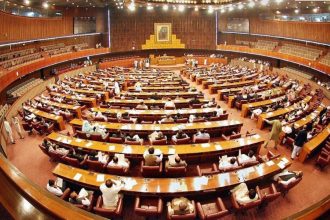In response to ongoing unrest in Gilgit-Baltistan due to a spike in wheat prices, the Economic Coordination Committee (ECC) has opted to maintain subsidies. This decision resulted in budget cuts in key ministries adhering to stringent IMF subsidy guidelines.
Transition in Financial Rates
Moreover, the ECC approved shifting from the London Inter-Bank Offer Rate (Libor) to the Secured Overnight Financing Rate (SOFR) for electricity contracts, which aligns with global financial market changes.
Gilgit-Baltistan has witnessed nearly a month of protests following a government decision to reduce wheat subsidies, leading to price hikes. Initially, the plan was to raise wheat prices gradually to Rs52 per kg to mitigate subsidy effects. However, the increase from approximately Rs20 to Rs36 per kg triggered widespread protests. The full withdrawal of subsidies would impose an additional financial strain of over Rs10 bn on the Gilgit-Baltistan government, which largely depends on federal support.
Due to IMF restrictions, the Ministry of Finance stated it could not offer subsidies beyond the budget. The solution involved reallocating funds from other ministries with significant budgets.
The transition from Libor to SOFR, initiated after Libor’s discontinuation on June 30, reflects a global shift to a more stable rate system endorsed by the Federal Reserve’s ARRC. Despite some concerns from Chinese investors, this transition is critical for contracts with foreign private contractors.
The ECC’s decision to approve various supplementary grants includes funds for the Institutional Reforms Cell, importation of Sahiwal Bull for a national breeding program, rehabilitation of flood-damaged roads in Khyber Pakhtunkhwa, and improving water supply in Lahore. These measures demonstrate the committee’s broad approach to addressing immediate financial and infrastructural needs.






